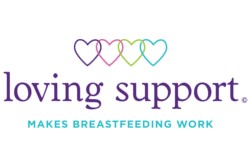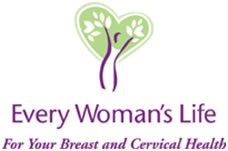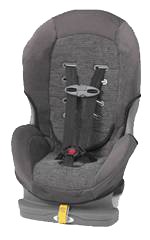Breast Feeding Peer Counselor Program

In 2004, Virginia WIC implemented the Loving Support Through Peer Counseling, Breastfeeding Peer Counselor Program. Loving Support© is funded by the United States Department of Agriculture, Food and Nutrition Services and was developed by Best Start, Inc. This program aims to enhance the continuity of WIC’s breastfeeding promotion efforts by offering mother-to-mother breastfeeding support. Breastfeeding moms are eligible to receive a larger food package for a longer duration from WIC—ask for details at your appointment.
Receive Breastfeeding Support:
· Enroll in the Virginia WIC Program
· Attend your scheduled WIC appointment
· Request to meet with a Breastfeeding Peer Counselor
Diabetes Tele-Education
Some special clinics are available in partnership with UVA Telemedicine. For more information visit UVA Health’s Telemedicine Programs website. For information on local classes and how to sign up, visit our Diabetes page.
Every Woman’s Life

Every Woman’s Life (EWL) is a public health program providing access to FREE breast and cervical cancer screening and diagnostic services for low income and uninsured women. Early detection of breast and cervical cancer may save your life. Program participants may receive cancer treatment FREE of charge through Medicaid under the Breast and Cervical Cancer Prevention and Treatment Act.
- Screening services (mammogram and/or Pap test) for women ages 40-64.
- Diagnostic services are provided to symptomatic women ages 18-39.
Screening is FREE if you are:
- A woman 40-64 years of age
- A resident of Virginia
- Have no insurance, cannot afford to pay your insurance deductible, or your insurance does not cover screening exams
- Your yearly income falls within the 2015 guidelines:
Household size Gross Yearly Salary
1 Up to $23,540
2 Up to $31,860
3 Up to $40,180
4 Up to $48,500
5 Up to $56,820
Health Education Programs
Informing, Educating, and Empowering Citizens. Health education is any combination of learning experiences designed to help individuals and communities improve their health, by increasing their knowledge or influencing their attitudes and behaviors. For more information about health education programs and activities, visit our Community Health Education Page. Want to get involved and help make a difference in your community? Visit our Regional Partners Page to find out how you can help!
Quit Now Virginia
Quit Now Virginia is a toll-free tobacco cessation phone counseling service that is provided to Virginia residents aged 13 and older 24 hours a day, seven days a week. Callers may receive one-on-one cessation counseling, information and self-help materials for residents who want to quit smoking or using tobacco. The counseling offered by the specially trained Quit Coaches, combined with medication prescribed by healthcare providers, give the best chance of quitting successfully. 1-800-QUIT-NOW / 1-800-784-8669
Long Term Care Screenings
For publicly-funded long-term care services, (such as nursing facility, assisted living facility, and home and community-based waiver services), an individual must be pre-screened and deemed eligible for services. An assessment must be completed before screeners can determine service options. We offer preadmission screenings by a registered nurse and social worker.
Low Income Car Seat Program
 The Child Passenger Safety Program focuses on promoting proper safety seat restraint use for children until they transition to the vehicle safety belt approximately birth through a height of 4’9”, the program focuses on the correct usage of child restraints among parents and caregivers through outreach and education, providing proper installation education and addressing the barriers that limit access to safety devices.
The Child Passenger Safety Program focuses on promoting proper safety seat restraint use for children until they transition to the vehicle safety belt approximately birth through a height of 4’9”, the program focuses on the correct usage of child restraints among parents and caregivers through outreach and education, providing proper installation education and addressing the barriers that limit access to safety devices.
Our program offers FREE child safety seats and booster seats that are available for income eligible children. Parents, foster parents and legal guardians of children who reside in Virginia may apply. Parents must attend a short class to learn the correct placement and use of the car seat or booster seat.
To see the basic eligibility requirements please view the program flyer in English or Spanish.
- Infants
- Infants should ride in a rear-facing safety seat minimally until they are at least 1 year old AND at least the minimum forward-facing weight AND height on the label of the seat being used.
- Recommendations from the American Academy of Pediatrics and the National Highway Transportation Safety Administration recommend using a rear-facing child safety seat until 2 years of age or longer if the seat has higher weight and height limits specified by the manufacturer, which can be as high as 40-45 pounds for newer seats.
- Never put an infant in the front of a vehicle with an active passenger airbag.
- Virginia Law requires that all children age 7 years and younger to be properly secured in a child safety seat or booster seat regardless of the child’s weight or height.
- Toddlers
- When children outgrow their rear-facing safety seats they would ride in forward-facing child safety seats, in the back seat, until they reach the upper weight or height limit of that particular safety seat.
- It is best to use a 5 point harness as long as the safety seat will allow before graduating to a belt positioning booster.
- Virginia Law requires that all children age 7 years and younger to be properly secured in a child safety seat or booster seat regardless of the child’s weight or height.
- Booster Seat
- Once children outgrow their forward safety seats, they should ride in booster seats, in the back seat, until the vehicle seat belt fits them properly (never before age 8).
- Seat belts fit properly when the lap belt lays across the upper thighs and the shoulder belt fits across the chest (usually when they are 4’9″ tall).
- Virginia Law requires that all children age 7 years and younger to be properly secured in a child safety seat or booster seat regardless of the child’s weight or height.
- Seat Belt
- When children outgrow their booster seats and they are 4’9″ tall, they can use the adult seat belts in the back seat, if they fit properly; lap belt lays across the upper thighs and the shoulder belt fits across the chest.
- Virginia Law requires that all children age 8 through age 17 (until age 18) must be belted correctly in vehicle safety belts, in vehicles manufactured after January 1, 1968. Exemptions are taxicabs, school buses, executive sedans and limousines.
Current Safety Seat Recalls.
For contact information to apply for a free child safety seat or booster seat, please contact your local health department or visit the Virginia Department of Health’s Car Seat Program Webpage. If you have trouble locating a distribution site or have questions regarding eligibility, please call the Virginia Department of Health, Child Passenger Safety Information Line at 1-800-732-8333.
Pharmacy Access
This program is designed to provide assistance for individuals, who are eligible, in applying for FREE or low-cost prescription medications. For more information visit our Pharmacy Access page.
PrEP Program
This program is designed to provide pre-exposure prophylaxis (medication) and education to clients who are at substantial risk for HIV infection. To be eligible for PrEP, an individual must be at least 18 years of age; a Virginia resident; and willing to participate in adherence and follow-up interventions. For more information, contact your local county health department.
ServSafe Program
ServSafe is the highest standard in food safety training and certification, and is recognized by more jurisdictions than any other manager food safety program. ServSafe content is based on input from experts across the industry who determined the knowledge, skills and abilities food safety managers need to know to perform their jobs effectively. ServSafe includes the 2007 FDA Food Code updates, the latest science-based information, plus real-world scenarios, updated case studies and activities to help everyone apply the concepts to practical on-the-job situations. The ServSafe program is the National Restaurant Association’s food safety training and certification program through which over 3 million foodservice managers have been certified. To learn more, visit the ServSafe Program Homepage. The program covers five key areas:
- Basic Food Safety
- Personal Hygiene
- Cross-contamination & Allergens
- Time & Temperature
- Cleaning & Sanitation
WIC—Women Infants and Children
WIC stands for Women, Infants and Children — and it’s here to help pregnant women, mothers, infants and young children stay healthy and eat right during times of important growth. For more information and to find out if you’re eligible, visit our WIC Page.
Southwest Child Development Clinic
The Child Development Clinic performs diagnostic evaluations for the following:
- Attention Deficit/Hyperactivity Disorder
- Autism
- Developmental Delays
- Mental Retardation
- Behavior/Emotional Disorders
- Learning Problems
- Other Disorders or Disabilities
Referrals can be made by families, schools, physicians, and any other community or professional agencies. For more information call 276-386-3803 or visit our Southwest Child Dev Clinic Page.

